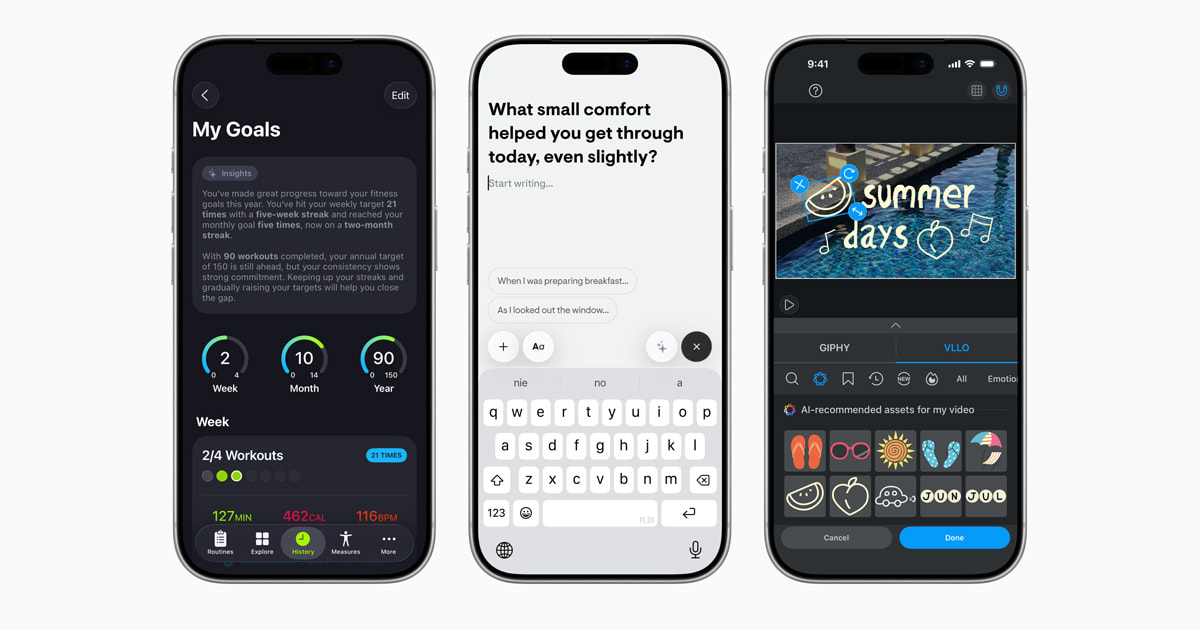Apple Expands AI Capabilities for Developers
With the September 2025 release of iOS 26, iPadOS 26, and macOS 26, Apple has introduced its Foundation Models framework to third-party developers worldwide. The framework, central to the company’s broader Apple Intelligence initiative, allows developers to integrate advanced, on-device large language model (LLM) features directly into their apps. This move enables a new range of intelligent app experiences while maintaining Apple’s longstanding commitment to user privacy.

Unlike many cloud-based AI offerings, the Foundation Models framework operates entirely on device, ensuring that sensitive user data never leaves local hardware. The AI inference is free for developers, allowing even small teams to deploy sophisticated features without incurring additional infrastructure costs.
Early Adoption Across App Categories
Several apps have already launched new features powered by the Foundation Models framework. In the fitness sector, SmartGym uses the framework to turn user-described workouts into structured routines, complete with sets, reps, rest times, and equipment adjustments.
Its Smart Trainer feature now provides detailed explanations for workout recommendations and generates personalized summaries of workout data, such as monthly progress and performance breakdowns. SmartGym also greets users with dynamic, fitness data-informed messages each time the app is opened.
“The Foundation Models framework enables us to deliver on-device features that were once impossible,” said Matt Abras, CEO of SmartGym, highlighting the framework’s simplicity and power.
The journaling app Stoic leverages the framework to create personalized prompts based on recent entries and user mood. For instance, users who log poor sleep or low mood receive compassionate, encouraging messages generated on device.

Stoic can also organize and summarize past journal entries, and improve natural language search, all while ensuring data privacy. Maciej Lobodzinski, Stoic’s founder, noted that features which previously required complex backend infrastructure now run natively, allowing rapid development and enhanced privacy.
Other health and wellness apps are also adopting the technology:
- SwingVision analyzes tennis or pickleball videos using Core ML and provides actionable feedback via the Foundation Models framework.
- 7 Minute Workout lets users design dynamic workouts with natural language, accommodating injuries or event preparation, and delivers motivational feedback.
- Gratitude generates weekly summaries and personal affirmations based on journal entries.
- Train Fitness recommends alternative exercises when equipment is unavailable, with user-specific refinements.
- Motivation organizes and delivers positive reminders tailored to user preferences.
Education and Productivity Apps Join In
Beyond health and fitness, educational apps like CellWalk use the framework to provide conversational explanations of scientific terms. Productivity tools are also exploring personalized summaries and contextual notifications, with developers citing both the privacy benefits and the ease of implementation.
Privacy and Offline Functionality as Core Features
Apple emphasizes that all intelligence features created with the Foundation Models framework are processed on device, with no data sent to external servers. This approach aligns with Apple’s privacy-first philosophy and distinguishes its offering from other AI platforms that rely on cloud computation.
Susan Prescott, Apple’s vice president of Worldwide Developer Relations, stated, “We’re excited to see developers around the world already bringing privacy-protected intelligence features into their apps. The in-app experiences they’re creating are expansive and creative, showing just how much opportunity the Foundation Models framework opens up.”
Implications for the Developer Ecosystem
By providing a free, on-device AI framework, Apple lowers the barrier for developers to build advanced features without additional operational costs. The offline capability is particularly significant for regions or scenarios with limited connectivity, and the privacy guarantees may appeal to users wary of cloud-based AI solutions.
As adoption grows, the Foundation Models framework is poised to reshape how intelligence features are delivered across Apple’s ecosystem, potentially setting new standards for privacy and AI in consumer apps.
